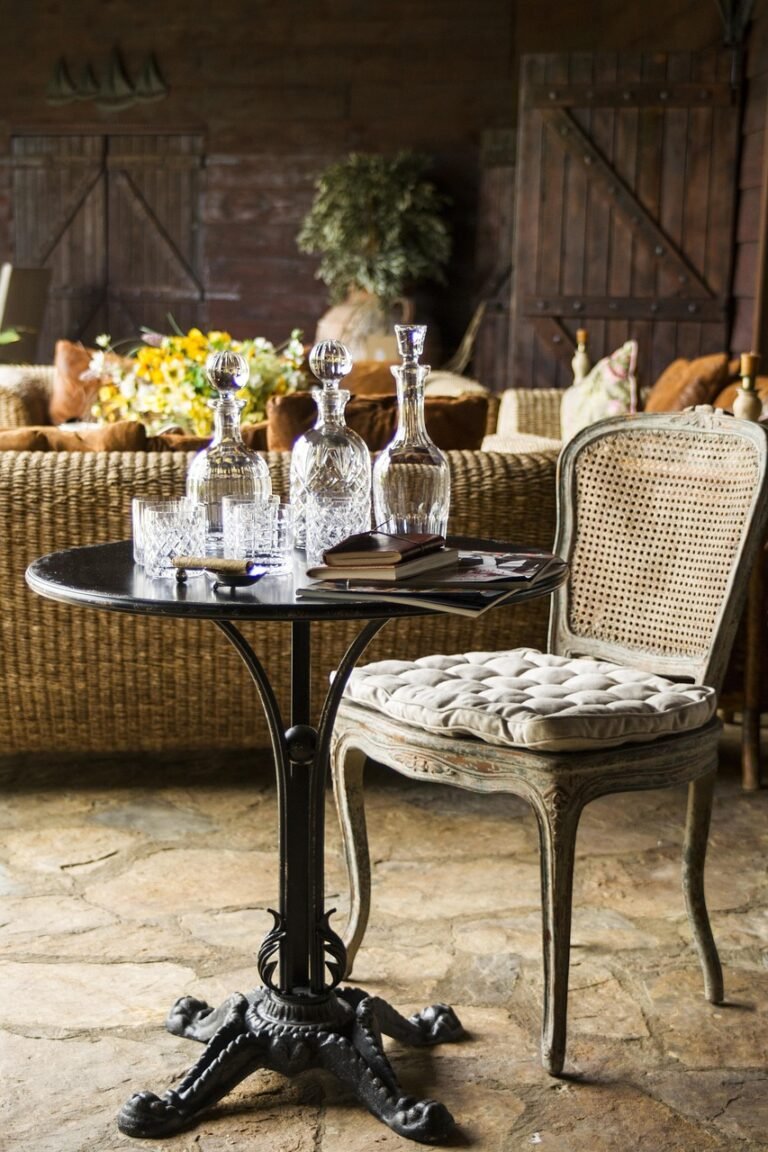Are you tired of feeling cold during the winter months? Look no further than fireplace heaters! These remarkable appliances not only provide the cozy warmth you crave but also add a touch of elegance to any room. In this article, we will explore the beauty and functionality of fireplace heaters, uncovering the secret to their remarkable heating capabilities. Get ready to be amazed as we reveal the best fireplace heaters that will transform your home into a haven of warmth and style.
Benefits of Fireplace Heaters
Fireplace heaters are not only a beautiful addition to any home, but they also offer several benefits that make them an appealing choice for heating your space. From efficient heat generation to enhanced ambiance and cost savings, fireplace heaters have a lot to offer.
Efficient Heat Generation
One of the main advantages of fireplace heaters is their ability to efficiently generate heat. Unlike traditional heating systems that rely on ductwork and forced air, fireplace heaters utilize radiant heat. This type of heat warms objects and people directly, creating a cozy and comfortable atmosphere in your space. Radiant heat is known for its ability to provide consistent and even warmth, ensuring that every corner of the room feels cozy.
Enhanced Ambiance
In addition to their heating capabilities, fireplace heaters also create a warm and inviting ambiance. The dancing flames and crackling sounds add a touch of coziness and relaxation to any space. Whether you’re curling up with a book on a chilly winter evening or spending quality time with loved ones, the flickering flames of a fireplace can create a serene and peaceful atmosphere.
Cost Savings
Another benefit of fireplace heaters is the potential for cost savings. Traditional heating systems can be expensive to operate, especially during the colder months. Fireplace heaters, on the other hand, offer a more cost-effective solution for heating your home. By using less energy and relying on efficient heat generation, fireplace heaters can help reduce your monthly heating bills.
Types of Fireplace Heaters
When it comes to fireplace heaters, there are several different types to choose from. Each type has its own unique features and benefits, allowing you to find the perfect fit for your needs and preferences.
Wood-burning Fireplace Heaters
Wood-burning fireplace heaters offer a classic appeal and timeless charm. They are typically the most traditional type of fireplace and require a steady supply of firewood to operate. Wood-burning fireplaces provide a truly authentic and rustic experience, perfect for those who enjoy the ritual of building a fire and the natural beauty of a wood-burning flame.
Gas Fireplace Heaters
Gas fireplace heaters provide convenience and control at the touch of a button. These fireplaces are fueled by natural gas or propane and offer instant heat with adjustable flames. With a gas fireplace, you can easily adjust the temperature and flame height to create the perfect ambiance without the hassle of gathering firewood or cleaning up ashes.
Electric Fireplace Heaters
Electric fireplace heaters are the perfect option for those who want the warmth and beauty of a fireplace without the need for a chimney or venting. These fireplaces are powered by electricity and produce heat using heating elements and a fan. Electric fireplace heaters are easy to install, energy-efficient, and come in a wide range of designs to suit any decor style.

This image is property of images.unsplash.com.
Factors to Consider When Choosing a Fireplace Heater
Before investing in a fireplace heater, there are several important factors to consider. These factors can help guide your decision and ensure that you choose the right fireplace heater for your specific needs and preferences.
Energy Efficiency
One of the key considerations when choosing a fireplace heater is its energy efficiency. Look for models that are designed to maximize heat output while minimizing energy consumption. Energy-efficient fireplace heaters can help you reduce your carbon footprint and save on heating costs.
Heat Output
The heat output of a fireplace heater is an important factor to consider, as it determines how effectively the heater can heat your space. Consider the size of the room you plan to heat and choose a fireplace heater with a heat output that matches your needs. It’s important to select a fireplace heater with enough BTUs (British Thermal Units) to adequately warm your space.
Installation Requirements
Different types of fireplace heaters have varying installation requirements. Wood-burning fireplaces, for example, require a chimney or venting system to safely release smoke and gases. Gas and electric fireplace heaters, on the other hand, may only require a gas line or electrical outlet. Consider the installation requirements of each type of fireplace heater and choose the one that best suits your home and lifestyle.
Aesthetics
Lastly, consider the aesthetic appeal of the fireplace heater. Fireplace heaters come in a variety of designs, ranging from traditional to modern. Choose a style that complements your existing decor and adds to the overall ambiance of your space. Whether you prefer a sleek and minimalist design or a more ornate and traditional look, there is a fireplace heater to match your style.
Comparing Wood-burning, Gas, and Electric Fireplace Heaters
To help you make an informed decision, let’s take a closer look at the features and benefits of each type of fireplace heater: wood-burning, gas, and electric.
Wood-burning Fireplace Heaters
Wood-burning fireplace heaters offer a classic appeal that many homeowners find irresistible. The crackling sound of burning firewood and the natural beauty of dancing flames create a warm and nostalgic atmosphere. Wood-burning fireplaces require a steady supply of firewood and regular maintenance, but for those who enjoy the process of building a fire and the rustic charm it brings, the effort is well worth it.
Gas Fireplace Heaters
Gas fireplace heaters provide the ultimate convenience and control. With just the push of a button, you can enjoy instant heat and the flickering flames of a gas fire. These fireplaces are fueled by natural gas or propane and offer adjustable flames, so you can create the perfect ambiance for any occasion. Gas fireplace heaters also eliminate the need for firewood, making them a cleaner and more convenient option.
Electric Fireplace Heaters
Electric fireplace heaters are incredibly easy to use and install. Simply plug them into a standard electrical outlet, and you’re ready to enjoy the warmth and beauty of a fireplace. Electric fireplaces use heating elements and a fan to produce heat, making them energy-efficient and safe. They also offer a wide range of design options, from wall-mounted units to freestanding models, allowing you to find the perfect fit for your space.

This image is property of images.unsplash.com.
Choosing the Right-sized Fireplace Heater
When selecting a fireplace heater, it’s important to choose the right size to effectively heat your space. Consider the following factors to ensure you choose a fireplace heater that is appropriately sized for your needs.
Considering Room Size and Layout
The size and layout of the room you plan to heat should be taken into account when choosing a fireplace heater. Larger rooms will require a fireplace heater with a higher heat output to adequately warm the space. Additionally, the layout of the room, including the presence of open spaces or drafty areas, should be considered to ensure that the heat is distributed evenly throughout the room.
BTU Requirements
BTUs (British Thermal Units) are a measurement of heat output. To determine the appropriate BTU requirements for your fireplace heater, consider the square footage of the room you intend to heat. As a general rule of thumb, it is recommended to have 20 BTUs per square foot of space. However, other factors such as insulation and ceiling height may impact the heat requirements, so it’s important to consult the manufacturer’s guidelines for accurate BTU recommendations.
Heating Efficiency
In addition to the size and BTU requirements, it’s important to consider the heating efficiency of the fireplace heater. Look for models that are designed for maximum heating efficiency, ensuring that the heat generated is effectively distributed throughout the room. High heating efficiency will not only provide optimal comfort but also help save on energy costs.
Installation and Maintenance of Fireplace Heaters
Proper installation and regular maintenance are essential for the safe and efficient operation of your fireplace heater. Follow these guidelines to ensure that your fireplace heater remains in good working condition.
Proper Installation
Each type of fireplace heater has unique installation requirements. Wood-burning fireplaces, for example, require a chimney or venting system to safely release smoke and gases. Gas fireplace heaters may require a gas line and proper ventilation to ensure the safe combustion of natural gas or propane. Electric fireplace heaters simply need to be plugged into an electrical outlet and typically do not require additional ventilation. It’s important to follow the manufacturer’s instructions and consult with a professional if needed to ensure proper installation.
Regular Maintenance
Regular maintenance is necessary to keep your fireplace heater functioning at its best. Wood-burning fireplaces require regular cleaning of the chimney and removal of ashes. Gas fireplace heaters may require periodic maintenance by a professional to check for gas leaks and ensure proper operation. Electric fireplace heaters generally require minimal maintenance, but it’s still important to clean the unit and check for any loose connections regularly.
Safety Measures
Fireplace heaters require certain safety measures to ensure the well-being of your home and its occupants. Wood-burning fireplaces should be equipped with a sturdy fireplace screen to prevent sparks from escaping and causing potential hazards. Gas fireplace heaters should have proper ventilation to ensure the safe release of combustion byproducts. Electric fireplace heaters are generally considered safe, but it’s important to follow the manufacturer’s guidelines and avoid overloading electrical outlets.

This image is property of images.unsplash.com.
Fireplace Accessories to Complement Your Heater
To enhance the functionality and aesthetics of your fireplace heater, consider adding some fireplace accessories. These accessories not only complement your fireplace but also make the experience more enjoyable.
Fireplace Screens
Fireplace screens serve both a practical and decorative purpose. They act as a barrier to prevent sparks from escaping and help protect children and pets from getting too close to the flames. Fireplace screens come in a variety of designs and materials, allowing you to choose one that matches your style and adds a touch of elegance to your fireplace.
Fireplace Tools
Fireplace tools are essential for maintaining and tending to your fire. A set of fireplace tools typically includes a poker, tongs, a brush, and a shovel, all of which are necessary for safely adding wood, adjusting the logs, and cleaning up ashes. Choose a set of fireplace tools that are not only functional but also aesthetically pleasing, as they will be on display near your fireplace.
Firewood Storage
If you have a wood-burning fireplace, proper firewood storage is crucial. Storing firewood in a dry and well-ventilated area is essential to ensure the wood burns efficiently and produces less smoke. Consider investing in a firewood rack or storage container that keeps the wood neatly organized and off the ground, protecting it from moisture and pests.
In conclusion, fireplace heaters offer efficient heat generation, enhanced ambiance, and cost savings. There are different types of fireplace heaters to choose from, including wood-burning, gas, and electric. Factors to consider when choosing a fireplace heater include energy efficiency, heat output, installation requirements, and aesthetics. Wood-burning fireplace heaters provide a classic appeal, while gas fireplace heaters offer convenience and control. Electric fireplace heaters are easy to use and install. When choosing a fireplace heater, it’s important to consider the size of the room, BTU requirements, and heating efficiency. Proper installation, regular maintenance, and safety measures are vital for the safe operation of fireplace heaters. Fireplace accessories such as screens, tools, and firewood storage can complement your fireplace heater and enhance your overall fireplace experience. With the right fireplace heater and accessories, you can enjoy the beauty and functionality of a warm and inviting fireplace in your home.




